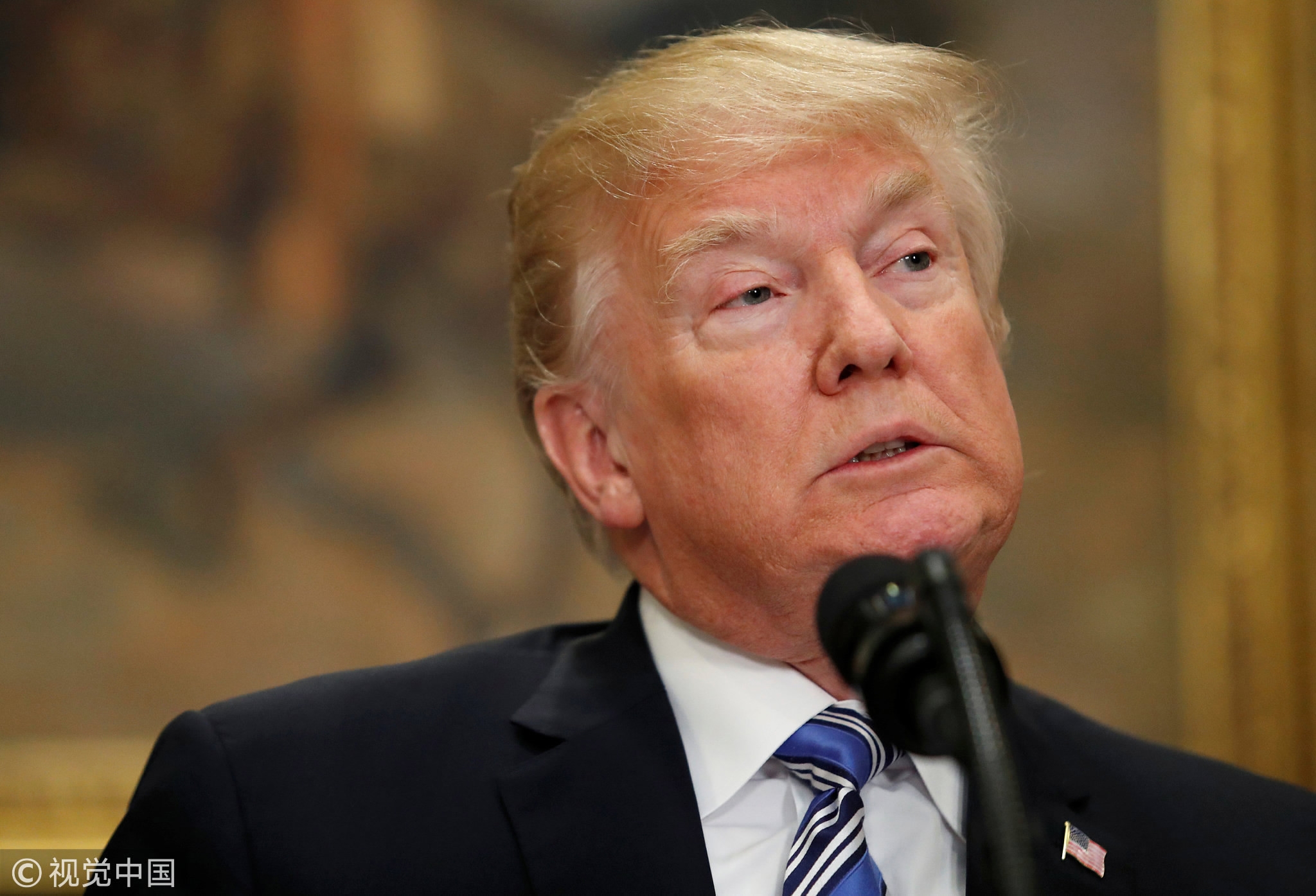
Opinions
21:01, 20-Mar-2018
Opinion: Trump's Taiwan Travel Act to wreak havoc for Taiwan
Guest commentary by Zhong Houtao

After US President Donald Trump signed the Taiwan Travel Act into law on March 16, the Tsai Ing-wen administration in Taiwan was bursting with optimism over the "good news." However, hard facts will mean that Taiwan will not only suffer from this act but may also become the victim of a conflict between China and the US.
The "One China" principle has served as the cornerstone and the anchor of China-US relations. Furthermore, the US stated clearly in the Joint Communiqué of the People's Republic of China and the United States of America on August 17, 1982 that it "acknowledged the Chinese position that there is but one China and Taiwan is part of China." Trump also stated publicly that he would honor the "One China" policy on February 9, 2017.

US President Donald Trump announces a presidential proclamation placing tariffs on steel and aluminum imports, at the White House in Washington, D.C. on March 8, 2018. / VCG Photo
US President Donald Trump announces a presidential proclamation placing tariffs on steel and aluminum imports, at the White House in Washington, D.C. on March 8, 2018. / VCG Photo
But according to the Taiwan Travel Act, the US will “allow officials at all levels of the United States Government, including Cabinet-level national security officials, general officers, and other executive branch officials, to travel to Taiwan to meet their Taiwanese counterparts,” and vice versa, Taiwanese high level officials could also travel to the US. Recognizing Taiwan as an “independent political entity,” this policy attempts to establish “quasi-official relations” between the US and Taiwan. Undoubtedly, this severely violates the "One China" principle and also betrays the US' own "One China" commitment.
At the same time, the US may also be sending the wrong message to the Tsai Ing-wen administration, given a seal of approval for the “Taiwan Independence” ideology that is growing in educational, cultural and social areas in Taiwan. It could mislead Tsai into believing that the US would “tolerate” or even “support” her in further efforts for “Taiwan Independence”.
In future, if the Tsai Ing-wen authority invites US senior officials such as the deputy secretary of State or the deputy secretary of Defense to Taiwan or sends Taiwan senior officials to the US, it will suffer serious consequences as the Chinese Mainland will have no choice but to respond with counter moves, including cutting off Taiwan's "diplomatic partners" or exerting "military pressure."
And if Tsai crosses the red line of the “Taiwan Independence de jure” and provokes the peace and stability of cross-Strait relations, the Chinese Mainland, with firm confidence and capability to safeguard China's sovereignty and territorial integrity, will take much tougher measures to defeat any separatist attempt or any foreign intervention.

Street market between buildings in Taipei. /VCG Photo
Street market between buildings in Taipei. /VCG Photo
Actually, by initiating the Taiwan Travel Act, the US is teasing rather than helping Taiwan. The act just states that the US "encourages" or "allows" mutual communication between their high-level officials, but never states that the US "shall" or "must" send its high-level officials to Taiwan. What's more, the act only reflects the "sense of congress" or "statement of policy," and it is not legally binding for the executive branch. And unlike the Taiwan Relations Act, there are no oversight clauses in the act. That means the executive branch will not necessarily implement the provisions of this act. From this, it could be concluded that the Taiwan Travel Act is little more than a political tactic or a symbolic gesture for Taiwan. Apparently the US is preparing a "gift" for Taiwan, but actually it is just stating an opinion or simply making a point and may do nothing for Taiwan.
Therefore, Tsai Ing-wen should tread carefully and realize that the underlying reason for this act is to use Taiwan as a bargaining chip in China-US relations. The US will abandon Taiwan with little hesitation if it needs to, and in this scenario, Tsai would be left "between a rock and a hard place".
(The author is an associate research fellow with the Institute of Taiwan Studies at the Chinese Academy of Social Sciences. The article reflects the author's opinion, and not necessarily the views of CGTN.)

SITEMAP
Copyright © 2018 CGTN. Beijing ICP prepared NO.16065310-3
Copyright © 2018 CGTN. Beijing ICP prepared NO.16065310-3